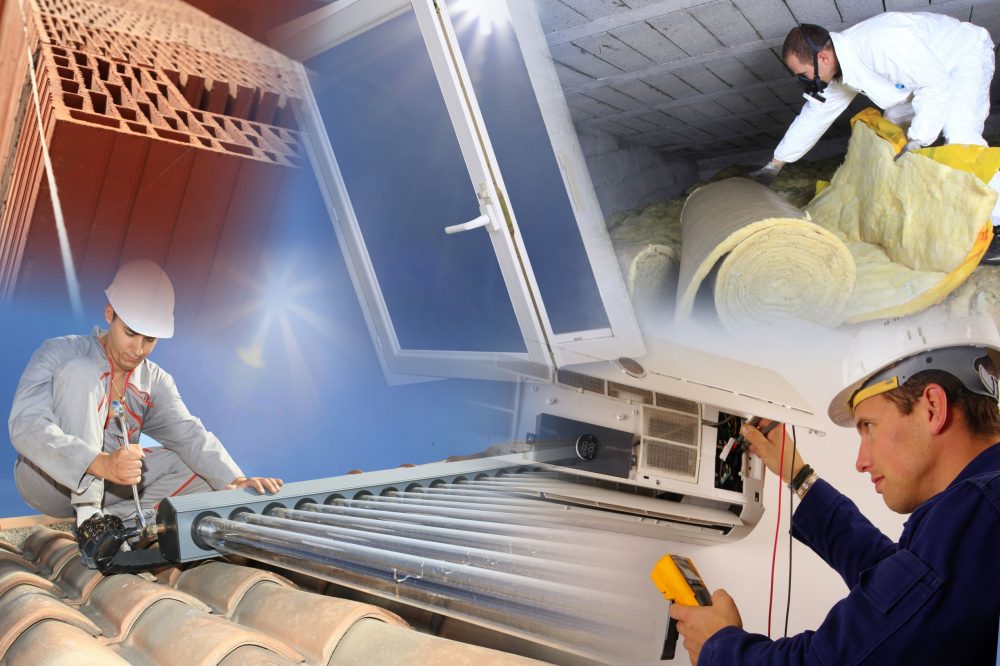With the ever-rising costs of energy in the UK, more and more people are looking at ways to reduce the amount of energy they use in the home. But for
With the ever-rising costs of energy in the UK, more and more people are looking at ways to reduce the amount of energy they use in the home.
But for many people, it’s not just about cost. The environmental impact of a world with high-energy demands is much documented. Fossil fuels are becoming depleted and the damage to the Earth is fast becoming irrecoverable. Pressure is mounting on the consumer to change their fashion buying habits and home energy consumption is no different.
With that in mind, if you want to do your bit and save some cash at the same time, here are five ways you can start to reduce your reliance on costly energy companies:
Install Triple Glazing
It’s likely you’re already enjoying the benefits of double-glazing, but have you thought of going one better? The popularity of triple glazing is on the rise.
And there’s good reason for that. The benefits of triple glazing far outweigh those of double-glazing. You get better heat insulation, better sound insulation, reduced condensation, and increased strength and security.
Of course, it’s also more expensive than double-glazing but, over time, the savings you’ll make on your energy bills will overcome that extra cost.
Insulate Your Loft
According to the Energy Saving Trust, ‘25% of heat is lost through the roof in an uninsulated home’. That means if your loft doesn’t have adequate insulation, you’ll be using more energy to heat your home than you need to.
The current recommended minimum loft insulation thickness is 270mm for glass wool, 250mm for rock wool or 22mm for cellulose. However, the recommended thickness has regularly increased since the 1960’s so you’ll need to check the latest guidelines periodically.
Upgrade Your Boiler
If your boiler is more than 10 years old, it’s unlikely to be the most energy efficient. In fact, changing an old boiler for a new one could save you as much as £300 a year.
Modern condensing boilers are usually your best choice as they have an efficiency of around 90% versus just 75% for a modern non-condensing model.
However, keep in mind that replacing a boiler is not cheap. You’re looking at upwards of £2000, more if you want to relocate it at the same time. That means it will take a few years to recover your expenditure.
Install Solar Panels
Solar panels have been one of the most popular energy efficient upgrades over the past few years. That’s thanks partly to Government grants and incentives to homeowners who install them.
While such schemes are much harder to come by nowadays, solar panels still represent a shrewd investment for those looking to reduce their home energy consumption.
By generating your own electricity through solar, you reduce your reliance on the green and ensure you live a more ‘green’ life.
A word of warning though, solar panels are unlikely to increase the value of your home. That means they are best installed when you intend on staying at the property for at least another 10-15 years.
Be More Energy-Aware
Finally, reducing your energy consumption may come down (at least in part) to your own attitudes and behaviours.
Spending money on energy efficiency upgrades is all well and good, but if your mindset is wrong, you’ll be limiting your savings.
The little things like switching off lights when you leave a room, hanging washing out to dry instead of using a tumble dryer, and remembering to switch appliances off at the socket when not in use can all make a big difference.
Make sure you’re using technology to your advantage. Smart meters make it easy to monitor your energy consumption. Thermostats with remote control via your mobile phone allow you to only have the heating on when you’re at home.
If you start by looking at your own habits, and combine that with physical upgrades such as changing your boiler or insulating your loft, you can go a long way to reducing your energy consumption and lowering your bills.




COMMENTS